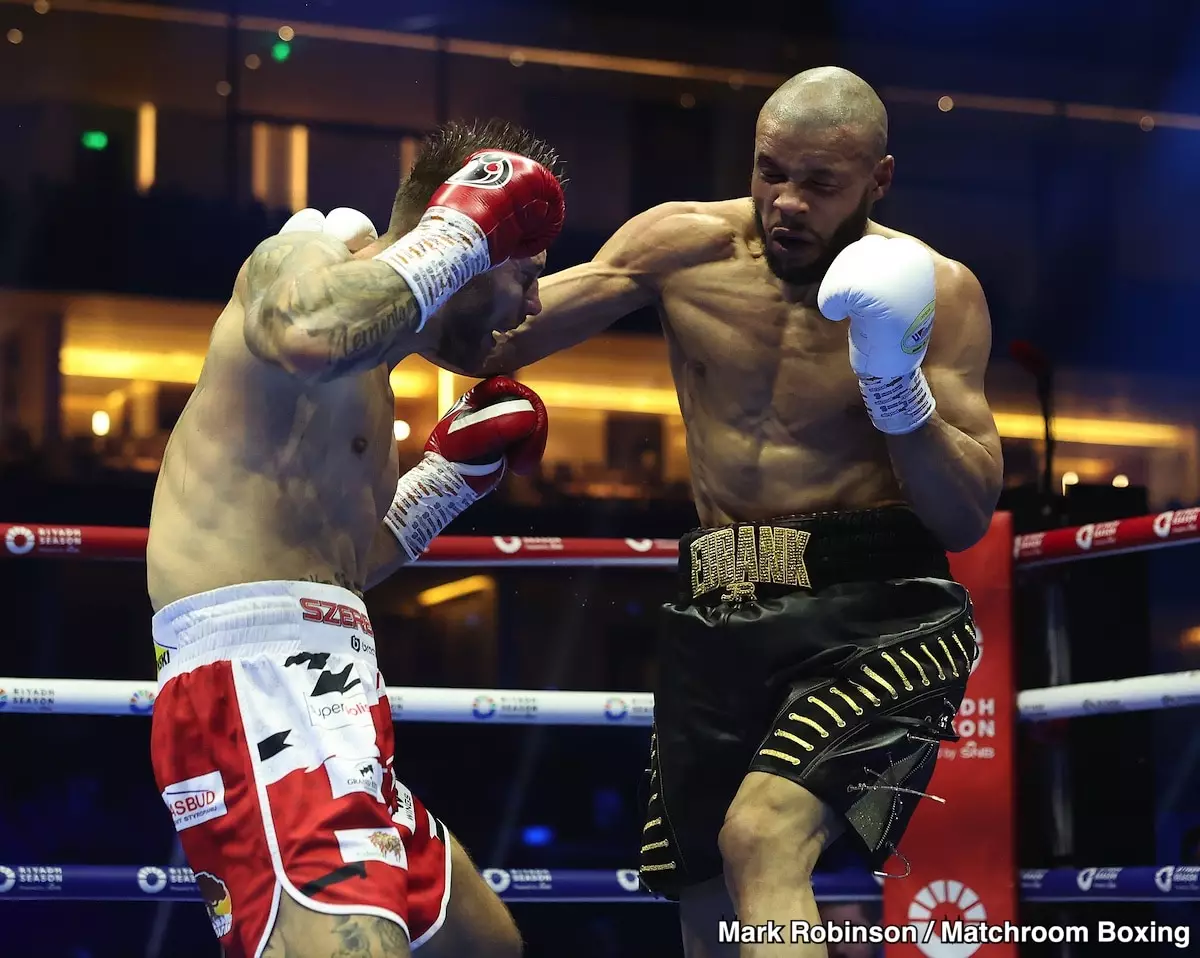By BoxingHit Staff-
In the world of professional boxing, the debate over the legitimacy of a fighter’s dedication to the sport versus their inclination towards celebrity culture often arises. This dilemma is especially pronounced in the case of Chris Eubank Jr., a boxer whose tactics and motivations have come under scrutiny. Carl Froch, a notable figure in British boxing, has voiced concerns over Eubank Jr.’s position within the boxing hierarchy. According to Froch, Eubank Jr. does not belong at the world level, suggesting that his focus is more on financial gain than on pursuing championship belts.
As a professional athlete with a career spanning over a decade, Chris Eubank Jr. holds an impressive record of 35 wins and 3 losses. However, his sole venture into the realm of world championship boxing ended in disappointment when he faced George Groves in 2018 for the WBA super middleweight title, losing by unanimous decision. This singular experience at the championship level raises questions about Eubank Jr.’s aspirations as a boxer. Froch asserts that Eubank Jr.’s lack of ambition in competing for titles showcases an unwillingness to truly challenge himself within the sport. Instead, Eubank seems to prefer a lifestyle that includes elements common to celebrity culture—poker games, high-profile public appearances, and, most notably, money-financed bouts.
This perception is integral to understanding Eubank Jr.’s appeal to the UK public. Despite the criticisms leveled against him regarding his dedication to boxing and pursuit of titles, there remains a palpable interest in watching him fight. This could be attributed to his lineage as the son of the famed boxer Chris Eubank Sr. In many ways, Eubank Jr.’s fights serve as more than mere sporting contests; they are spectacles that draw attention, offering a blend of entertainment and boxing.
Froch emphasizes that Eubank Jr. can be victorious, but only if he is matched against opponents who do not pose significant challenges. This assessment was substantiated by Eubank’s recent seventh-round KO victory over Kamil Szeremeta, a fighter whose skillset did not test Eubank’s limits. Though he has the potential to win against lower-tier competitors, questions linger regarding his ability to compete at more elite levels of boxing. Froch argues that, like Eubank, Conor Benn lacks the caliber to reach the highest echelons of the sport, despite the label of being an “exciting” fighter.
As much as Froch critiques Eubank Jr., he recognizes the inherent financial lure of potential matchups with fighters like Conor Benn, Canelo Alvarez, and Billy Joe Saunders. These bouts promise substantial monetary rewards, which appeal to Eubank’s apparent priorities. Even individuals skeptical of Eubank’s commitment to honing his craft may find themselves drawn to the narratives these matchups create, thereby sustaining his career for the foreseeable future.
With an estimated net worth of £5 million, Eubank Jr. exemplifies the intersection between boxing prowess and enterprising commercialism in sports. The allure of three high-profile fights before his retirement ensures that Eubank Jr.’s career will be financially rewarding. However, this raises poignant questions regarding the motivations of modern-day athletes. Are they shaping their careers based on sporting integrity, or are they leveraging their fame and marketability as primary drivers of success?
Carl Froch’s comments hint at a growing concern in boxing, a sport historically steeped in honor and the pursuit of championship glory. As fighters like Eubank Jr. choose to prioritize financial gain and celebrity status over aspiring for greatness, the traditional narrative of what it means to be a champion may require re-evaluation. The landscape of boxing could be shifting towards an entertainment-centric model where the lines between sporting achievement and commercial success become increasingly blurred.
Chris Eubank Jr.’s career serves as a reflection of the contemporary boxer’s dilemmas—a quest for financial security intertwined with the weighty expectations of legacy and honor in sport. Whether Eubank Jr. can successfully balance these competing interests remains to be seen, but one thing is clear: his journey is emblematic of larger trends within the world of professional boxing, where celebrity culture and economic incentives often overshadow traditional athletic aspirations.


Leave a Reply